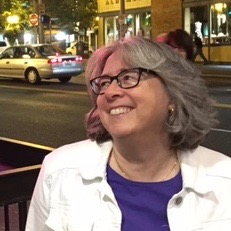Back in the day, we all complained about something called “phone tag.” I would call you on the phone and leave you a message, asking you to call me back, you would call me back and leave a message, and we would take turns doing this until such time as we both got on the phone at the same time and had a conversation. At the time, this seemed frustrating and inefficient.
Sometimes you called to leave a message when you knew I wouldn’t be able to answer, so you could discharge your responsibility without investing your time in the real conversation. Sometimes I deliberately didn’t pick up when I figured it was you; I just wasn’t in the mood to talk. Eventually, though, we would have whatever conversation we needed to have, resolve whatever needed resolution, and cross something off our lists.
When email first became popular, we thought our communication would be so much more efficient. We would lay out our questions and arguments in clear prose and, pronto, receive a response. We could send messages in the middle of the night and, magically, the answers would be in the “inbox” when we awoke. It would solve all our problems.
Those were the days before the 100-message-a-day inbox. The correspondence has become so voluminous that email programs now keep track of “threads” and gmail offers to help you prioritize incoming email. I’m not even counting spam here, which is already filtered and filed away in the “junk” box, when I tell you that all my inboxes combined hold more than 12,000 email messages. I’m not one of those people who saves everything forever, either. I love deleting messages I no longer need. The problem is this: I have multiple “conversations” going on at any one time that all require 8-10 messages to complete to the point of deletion or filing in more permanent storage.
“Phone tag” has now been replaced by “email tag” or “facebook tag,” except for the missing voice conversation in which the loose ends get tied up. I send a message to you saying, “Want to have lunch next week?” on Thursday morning. By Friday I probably have your response, which is something like, “Sure, what day?” I respond with, “How’s Wednesday?” and then leave your message in my inbox to help me remember in case you don’t reply promptly. It will likely take 6-7 messages back and forth to set our lunch date. More complicated interactions are more protracted; days can elapse between messages.
Sometimes I get frustrated by the whole thing and pick up the phone to cut through the fog. But wait, I no longer have your phone number. The phone book is useless because your number is unlisted and I don’t have your cell number. I’m going to have to email you or message you on facebook to get it.
I have two teenagers. They informed me a while ago that it’s now considered rude to phone somebody without first contacting them on facebook to make sure it’s ok, unless it’s a very close friend. In that case, you should probably text instead. We now have more ways to contact each other and more barriers to using them.
I started writing this post two weeks ago and just got around to finishing it. In the meantime, the Wall Street Journal has caught up with my thoughts.
I have a radical proposal. If you need to communicate with me, how about giving me a call…on my landline.


